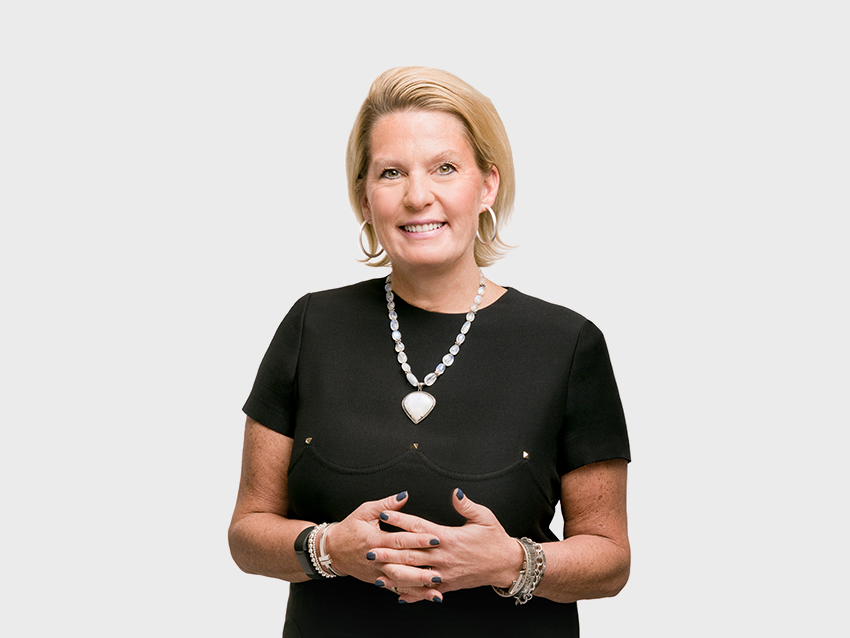Creating Work Environments Where Employees Feel Trusted
This article is originally from GlobeST, written by Tasha Norman on October 27, 2022.
“Be your true self and prepare for the pivot” says Deb Donley, Founder and CXO of Vocon. “You want to create work environments where employees feel trusted – a place they want to go to (and stay) when they come into the office.”
What has been the biggest challenge in your particular role, and how have you overcome those obstacles?
The pandemic and transformation of the workplace. My team and I have worked to overcome and help clients overcome it with collaboration. In the past year, Vocon has conducted multiple studies to assist organizations in defining and strengthening work environments with office amenities that support their people, productivity, activities and cultural goals. I establish relationships with clients and set the direction of various transformational projects. My commitment and creativity have helped Vocon become one of the country’s most prominent design firms and one of the top 40 firms internationally. I believe in working across projects to perpetuate positive partnerships, internally and externally, while balancing the responsibilities of an interdisciplinary, creative firm. My team and I collaborate with each client to ideate holistic, pandemic-age work environments that reflect their companies’ cultures, personalities, and individual “back to office” strategies.
What about your current role/position at the company are you most happy with?
I love working with businesses to navigate pandemic-related disruptions to offices and workplace culture, helping them adapt to changes and uncertainty by strategically transforming their spaces. I’m most happy helping Vocon team members become leaders in our industry which involves a commitment to excellence and a genuine & authentic approach to creating long-term relationships (“Vocon’s secret sauce”).
What is the best piece of advice you have received that has helped you succeed in your industry? Also, do you have any advice specifically for the next generation?
One of the best pieces of advice I received throughout my entire life is the importance of meeting and connecting with people where they are, rather than where you think they should be. Being genuine and authentic in everything you do is the key to having long-term personal and professional relationships.
My advice for younger generations is always “be your true self” and “prepare for the pivot”. One thing that is for certain in life is change. Accept it, rather than fighting it. Those uncomfortable moments often lead to the most memorable and long-standing relationships!
Would you advise any younger person to begin a career in CRE?
I would advise young people to go into commercial real estate. Not only is it an industry in which one can advance and support a family, but CRE is also unique for the ability to develop meaningful, long-term client relationships and design work environments that reflect cultures, personalities, strategies and operational needs.
Please share with us the best lessons learned or a surprising component of your unique journey. Or share an initiative that you are working on that you are most proud of.
The best lessons I’ve learned involve fostering relationships and actively participating in every project stage. Taking a hands-on
approach to forging genuine connections can create trust, enhance projects and allow you to better balance responsibilities. Carry that sense of caring into the community. A life of servant-leadership is a life well lived. I’ve spent my spare time serving as a board member for numerous educational and civic institutions in Ohio and New York, including the Group Plan Commission, Greater Cleveland Partnership, the University School, Leadership Cleveland, the Cuyahoga Community College Foundation, and Elon University, and the YWCA.
In your opinion, what takeaways did we learn from the COVID-19 crisis?
Companies must consider how they can create genuine and authentic connections with their employees. Space can help build the gap by creating a physical representation of an organization’s visions, values, and strategy. The pandemic raised the awareness level of how people think about their area and how important it is to think about space in the context of what you’re going to work to achieve. More and more people are thinking about what fits. There’s no one-size-fits-all answer for offices and no magic ratio of employees to workstations. Needs vary by company, industry and even within companies based on the position and the department. Companies must be more holistic in their workplace design strategies to gain traction with employees, including considering how employees will react to each change, whether removing desks or reconfiguring rooms. Don’t merely cut square footage and/or remove desks and keep other parts of the office just as they were to save space. Make sure you’re making changes to the office that are not just to save square footage but to foster a more mobile, collaborative, and truly authentic community. You want to create a work environment where employees feel trusted – a place they want to go to (and stay) when they come into the office.
